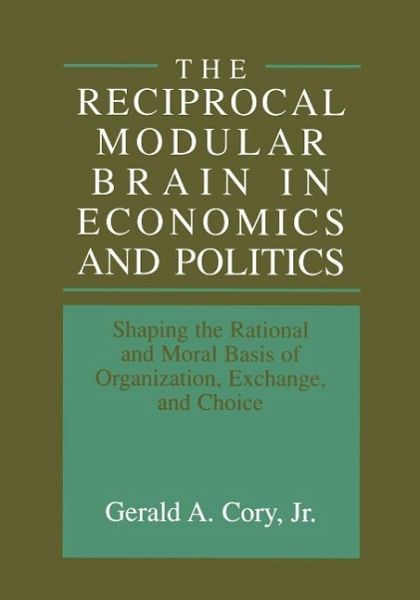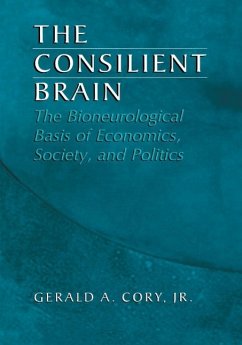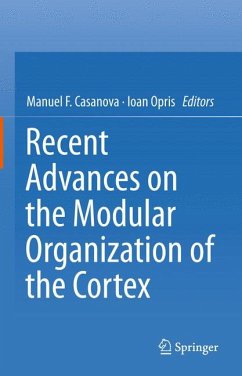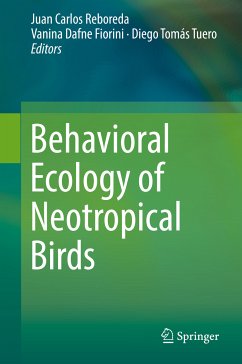
The Reciprocal Modular Brain in Economics and Politics (eBook, PDF)
Shaping the Rational and Moral Basis of Organization, Exchange, and Choice
Redaktion: Cory Jr., Gerald A.
Versandkostenfrei!
Sofort per Download lieferbar
72,95 €
inkl. MwSt.
Weitere Ausgaben:

PAYBACK Punkte
36 °P sammeln!
The present work is an extension of my doctoral thesis done at Stanford in the early 1970s. In one clear sense it responds to the call for consilience by Edward O. Wilson. I agree with Wilson that there is a pressing need in the sciences today for the unification of the social with the natural sciences. I consider the present work to proceed from the perspective of behavioral ecology, specifically a subfield which I choose to call interpersonal behavioral ecology th Ecology, as a general field, has emerged in the last quarter of the 20 century as a major theme of concern as we have become incr...
The present work is an extension of my doctoral thesis done at Stanford in the early 1970s. In one clear sense it responds to the call for consilience by Edward O. Wilson. I agree with Wilson that there is a pressing need in the sciences today for the unification of the social with the natural sciences. I consider the present work to proceed from the perspective of behavioral ecology, specifically a subfield which I choose to call interpersonal behavioral ecology th Ecology, as a general field, has emerged in the last quarter of the 20 century as a major theme of concern as we have become increasingly aware that we must preserve the planet whose limited resources we share with all other earthly creatures. Interpersonal behavioral ecology, however, focuses not on the physical environment, but upon our social environment. It concerns our interpersonal behavioral interactions at all levels, from simple dyadic one-to-one personal interactions to our larger, even global, social, economic, and political interactions. Interpersonal behavioral ecology, as I see it, then, is concerned with our behavior toward each other, from the most obvious behaviors of war between nations, to excessive competition, exploitation, crime, abuse, and even to the ways in which we interact with each other as individuals in the family, in our social lives, in the workplace, and in the marketplace.
Dieser Download kann aus rechtlichen Gründen nur mit Rechnungsadresse in A, B, BG, CY, CZ, D, DK, EW, E, FIN, F, GR, HR, H, IRL, I, LT, L, LR, M, NL, PL, P, R, S, SLO, SK ausgeliefert werden.












